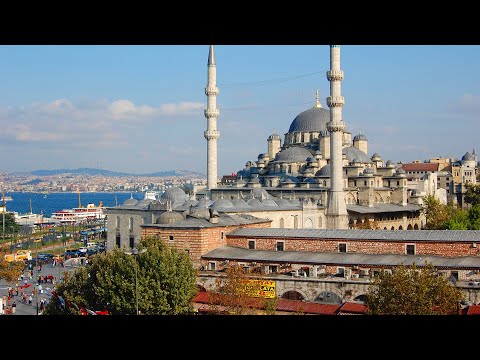
Istanbul, a vibrant city that straddles two continents, Asia and Europe, is a mesmerizing blend of ancient traditions and modern innovations. With its rich history that dates back over 2,500 years, Istanbul has served as the capital of four empires: Roman, Byzantine, Latin, and Ottoman. Today, it is Turkey’s cultural and economic hub, offering an exhilarating mix of sights, sounds, and flavors that attract millions of visitors each year.
#### Historical Significance
The strategic location of Istanbul along the historic Silk Road and on the Bosphorus Strait has imbued it with immense geopolitical importance. This positioning facilitated not only trade but also cultural exchanges between diverse civilizations. The city’s historical areas are so significant that they were inscribed as a UNESCO World Heritage site in 1985.
#### Architectural Marvels
Istanbul is renowned for its architectural wonders which provide a tangible narrative of its storied past. The Sultanahmet district or the Historic Peninsula houses some of the most iconic landmarks.
– **Hagia Sophia**: Originally built as a cathedral in 537 AD under the Byzantine Emperor Justinian I, it was later converted into a mosque after the Ottoman conquest in 1453. Today, it stands as a museum symbolizing the confluence of Christian and Islamic cultures.
– **Blue Mosque**: Known officially as Sultan Ahmed Mosque, this stunning piece of architecture was constructed between 1609 and 1616 during the rule of Ahmed I. It’s known for its exquisite blue tiles adorning its interior walls.
– **Topkapi Palace**: Serving as an imperial residence for Ottoman sultans for nearly four centuries, this vast complex is now a museum showcasing imperial collections including sacred Islamic relics, Chinese porcelain, weapons, calligraphy and more.
#### Cultural Tapestry
Istanbul’s culture is as diverse as its history. From Turkish tea gardens to bustling bazaars like the Grand Bazaar with over 4,000 shops selling everything from spices to jewelry; from traditional Turkish baths (hamams) to luxury spas; and from street food delicacies like simit (Turkish bagel) to sophisticated Ottoman cuisine at upscale restaurants – Istanbul offers an array of experiences.
The city’s artistic landscape is equally vibrant with numerous galleries embracing contemporary art alongside traditional forms like Islamic calligraphy or ebru (marbling art). The annual Istanbul Biennial is particularly noteworthy for showcasing work by international artists.
#### Nightlife and Events
Istanbul’s nightlife pulsates with energy reflecting its youthful demographic. Beyoglu district’s Istiklal Avenue transforms at night with music streaming from bars and rooftop terraces offering panoramic views over the glistening Bosphorus Strait.
The city hosts several annual events such as the Istanbul Film Festival which brings together cinema from around the globe; while religious festivals like Ramadan are marked with great fervor showing another facet of Istanbul’s eclectic character.
#### Bridging Continents
Perhaps one of most defining features of Istanbul is how it effortlessly blends Asian tranquility with European vitality creating a dynamic urban environment unique to this global metropolis. The intercontinental bridges – Bosphorus Bridge (15 July Martyrs Bridge), Fatih Sultan Mehmet Bridge and Yavuz Sultan Selim Bridge not only serve practical purposes but are symbolic links between two diverse cultures fused together through centuries of shared history.
In conclusion, whether it’s diving into history or indulging in culinary delights; whether seeking peace in beautiful mosques or dancing till dawn; Istanbul offers something special for every visitor ensuring their encounter with this age-old yet entirely modern city remains unforgettable.
